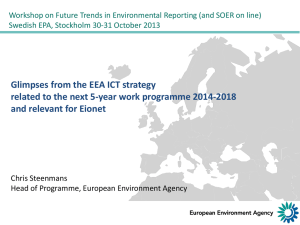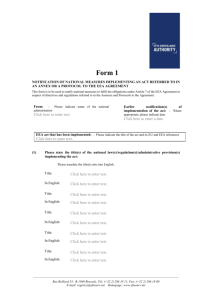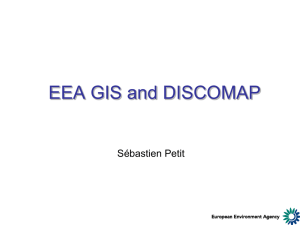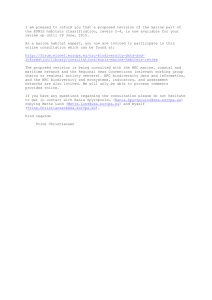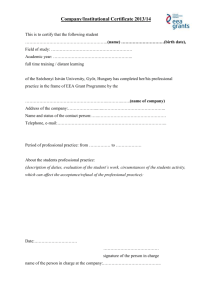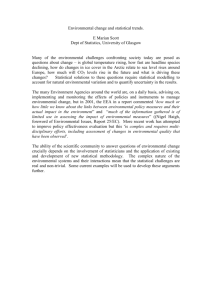Cover_FLIS request
advertisement
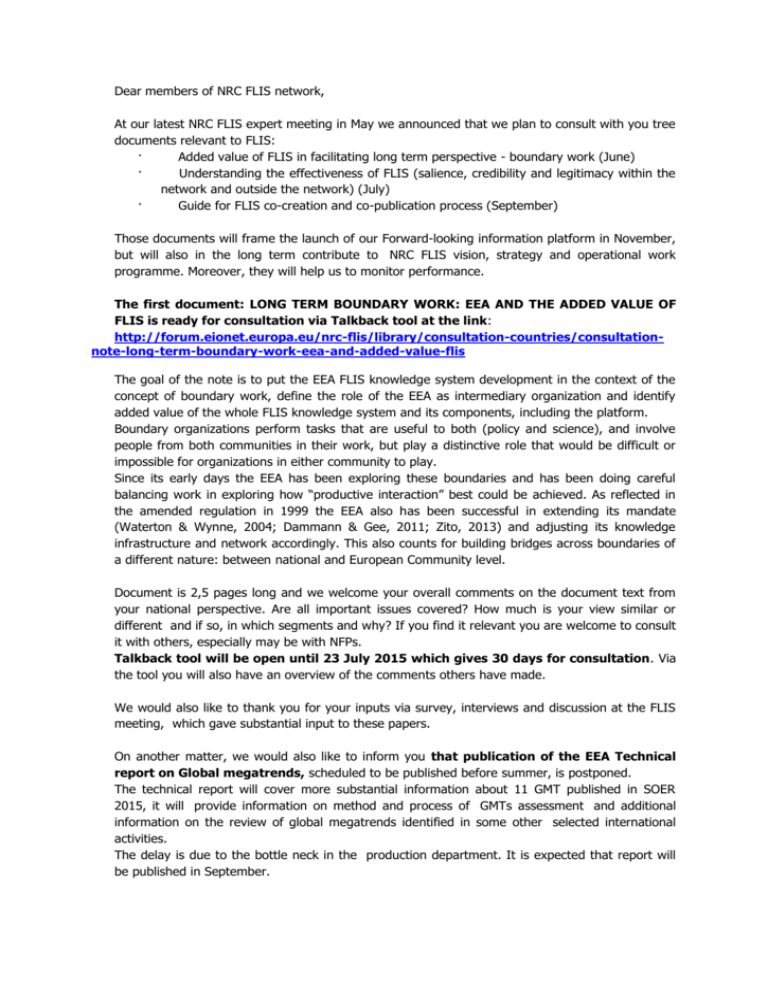
Dear members of NRC FLIS network, At our latest NRC FLIS expert meeting in May we announced that we plan to consult with you tree documents relevant to FLIS: · Added value of FLIS in facilitating long term perspective - boundary work (June) · Understanding the effectiveness of FLIS (salience, credibility and legitimacy within the network and outside the network) (July) · Guide for FLIS co-creation and co-publication process (September) Those documents will frame the launch of our Forward-looking information platform in November, but will also in the long term contribute to NRC FLIS vision, strategy and operational work programme. Moreover, they will help us to monitor performance. The first document: LONG TERM BOUNDARY WORK: EEA AND THE ADDED VALUE OF FLIS is ready for consultation via Talkback tool at the link: http://forum.eionet.europa.eu/nrc-flis/library/consultation-countries/consultationnote-long-term-boundary-work-eea-and-added-value-flis The goal of the note is to put the EEA FLIS knowledge system development in the context of the concept of boundary work, define the role of the EEA as intermediary organization and identify added value of the whole FLIS knowledge system and its components, including the platform. Boundary organizations perform tasks that are useful to both (policy and science), and involve people from both communities in their work, but play a distinctive role that would be difficult or impossible for organizations in either community to play. Since its early days the EEA has been exploring these boundaries and has been doing careful balancing work in exploring how “productive interaction” best could be achieved. As reflected in the amended regulation in 1999 the EEA also has been successful in extending its mandate (Waterton & Wynne, 2004; Dammann & Gee, 2011; Zito, 2013) and adjusting its knowledge infrastructure and network accordingly. This also counts for building bridges across boundaries of a different nature: between national and European Community level. Document is 2,5 pages long and we welcome your overall comments on the document text from your national perspective. Are all important issues covered? How much is your view similar or different and if so, in which segments and why? If you find it relevant you are welcome to consult it with others, especially may be with NFPs. Talkback tool will be open until 23 July 2015 which gives 30 days for consultation. Via the tool you will also have an overview of the comments others have made. We would also like to thank you for your inputs via survey, interviews and discussion at the FLIS meeting, which gave substantial input to these papers. On another matter, we would also like to inform you that publication of the EEA Technical report on Global megatrends, scheduled to be published before summer, is postponed. The technical report will cover more substantial information about 11 GMT published in SOER 2015, it will provide information on method and process of GMTs assessment and additional information on the review of global megatrends identified in some other selected international activities. The delay is due to the bottle neck in the production department. It is expected that report will be published in September. Best regards Anita Anita Pirc Velkavrh Foresight and sustainability Integrated Environmental Assessments Programme European Environment Agency Desk officer for Slovenia
